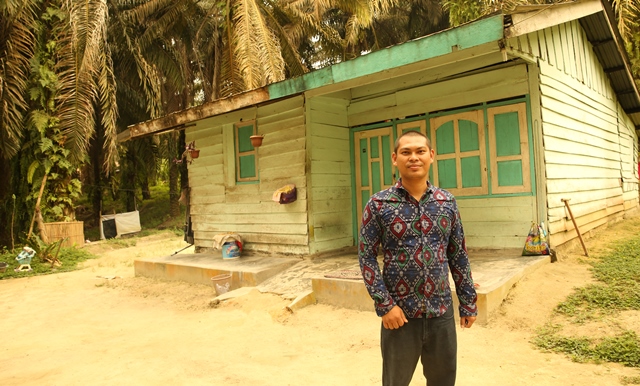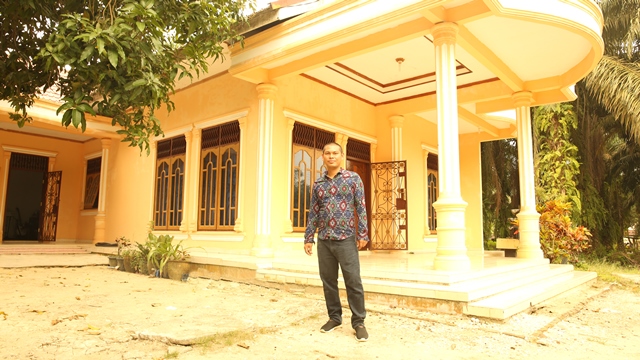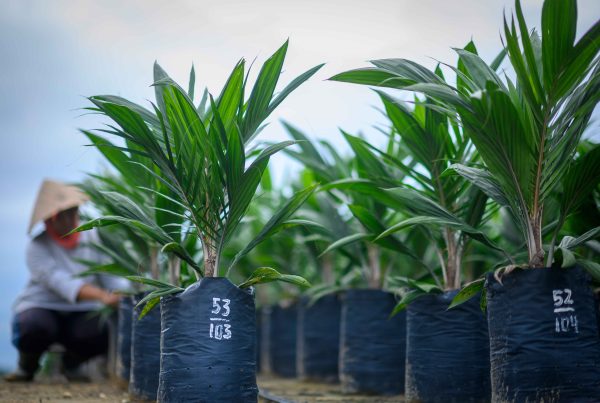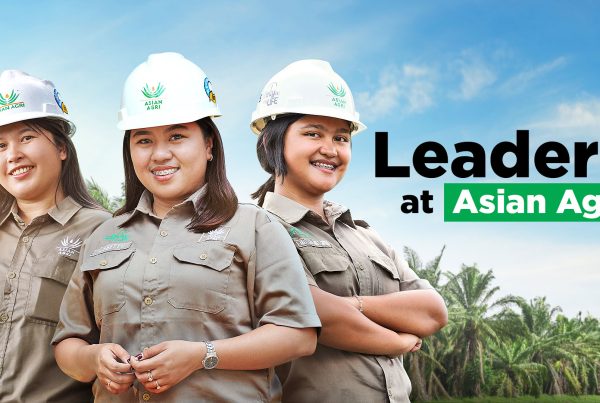It was 1990 when Erik Widirianto first found out that he was to be separated from his father and mother, and go to live with his grandfather.
Erik’s parents had decided to take part in the PIR-Trans Program, a population distribution program that the Indonesian government had recently launched at the time.
As part of the program, Erik’s parents moved from Lumajang in East Java to Pelalawan in Riau, where they were provided with two hectares of palm oil plantation to manage as their livelihood.
It wasn’t until four years later when his parents finally had enough money to also move him to Pelalawan to rejoin them.
Erik was slightly surprised – everything was limited here in Pelalawan. The nearest school – in Pangkalan Kerinci – was five kilometres away from the village he resided. Erik had to either walk or cycle twice that distance daily, just to get to school and back home after.

“When I moved here, I was seven years old. Many people came here but did not feel comfortable and eventually decided to give up and go home,” Erik said.
However, Erik’s father was different from the average person. He decided to persevere and stay on in Pelalawan to take care of the oil palm plantation that had been given to him.
His father’s struggle was not in vain and bore fruit, eventually managing to vastly improve the family’s economic situation through the palm oil plantation.
“Alhamdulillah, thanks to the oil palm plantation that my father managed, my parents were even able to finance my education until I graduated from university in Pekanbaru,” said Erik.
After graduating, Erik decided to come back to Pelalawan to take care of his family’s palm plantation, especially as his father had advised him not to sell the plantation, before passing away in 2012.
“This palm oil plantation was the sole source of income for my family and it was through this plantation that I was able to get a proper education, so I will not abandon it,” Erik said.
“Previously, my father taught me how to become a palm oil farmer, including how to cultivate palm trees and how to harvest them. He also wished that I could expand the size of the plantation,” he added.

Over time, Erik has managed to follow in his father’s footsteps as a successful palm oil farmer. The monthly income from the palm oil plantation continues to increase significantly, along with the size of the plantation.
“The plantation land that my father left behind was 11 plots (22 hectares) initially, and I’ve now expanded it to 32 plots (64 hectares),” Erik said.
“The gross income from each plot is usually about IDR 4 million so I manage to have a net income of about IDR 30 to 50 million per month, from the whole plantation,” he continued.
However, while he may be successful now, Erik has not forgotten his humble beginnings. He remembers when there was no school in his village and has since established an Islamic school at the junior high school level there, named ‘Madrasah Tsanawiyah Kampung Kumbara Utama’.
In addition to being one of the school’s founders, Erik also still actively teaches at the school.
“I am able to divide my time between taking care of the plantation and teaching at school. Every morning, I visit the plantation, and in the afternoon I teach at the school,” he shared.



